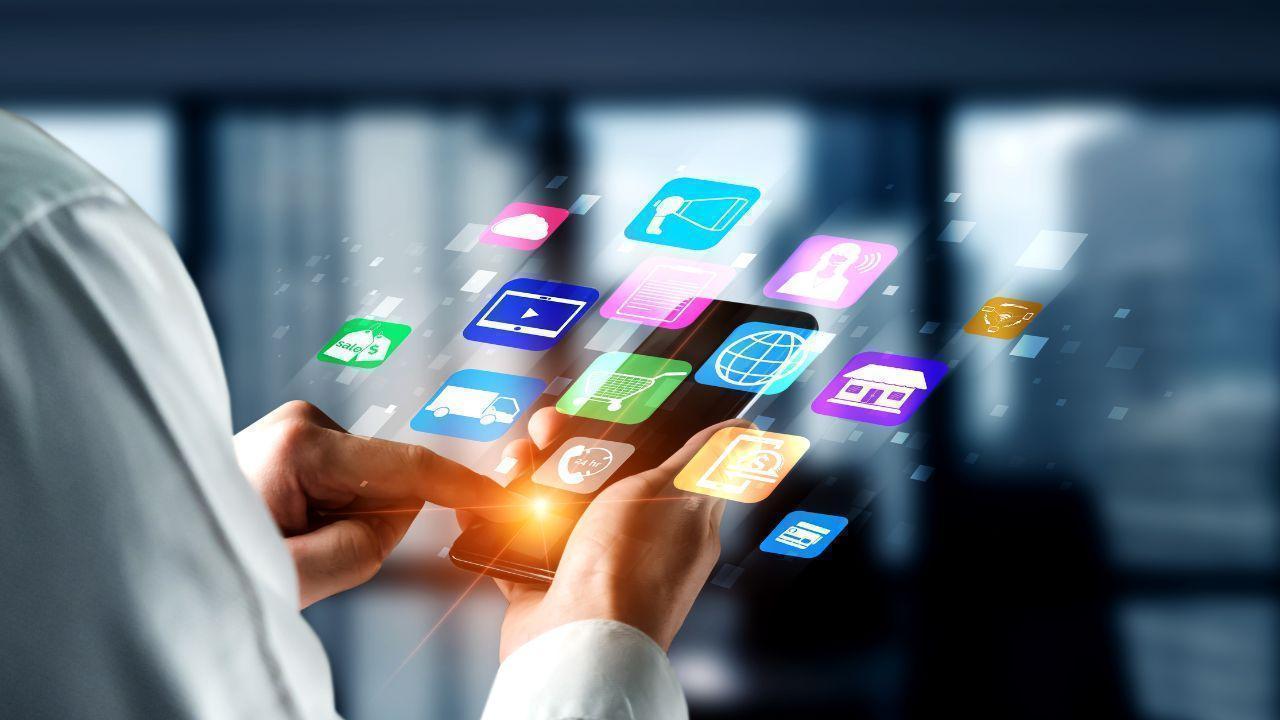
Post by: Vansh Kumar
In today’s fast-evolving world, how technology is changing the future of work and education has become a topic of immense importance. As we continue to advance in the digital age, new technologies are reshaping the way we work, learn, and live. From artificial intelligence (AI) and automation to virtual classrooms and online collaboration tools, these innovations are not just transforming industries but are also redefining the skills and knowledge required for the future. In this article, we’ll delve into how these technological advancements are revolutionizing the way we approach careers and education, and how we can adapt to this new landscape.
The impact of technology on work is undeniable. In the past decade, we’ve witnessed a surge in the use of tools and platforms that streamline processes, increase productivity, and even introduce entirely new ways of working. Remote work, for instance, has become a viable option for millions of workers worldwide, thanks to the rise of cloud-based tools, video conferencing, and collaborative software. Companies are now able to operate globally, with teams spread across different continents, all working together seamlessly.
Automation and AI are also playing a significant role in transforming industries. Tasks that were once manual and time-consuming are now automated, leading to faster production times and more efficient workflows. In fields such as manufacturing, logistics, and even finance, machines are performing routine tasks, allowing human workers to focus on more complex, strategic responsibilities. This shift not only boosts productivity but also opens the door to new job opportunities that require advanced technological skills.
However, the changing landscape of work also brings challenges. As certain jobs become automated, there is a growing need for reskilling and upskilling. Workers must adapt to new roles and acquire technical skills that weren’t necessary a few years ago. This is where education comes into play.
Education is also undergoing a profound transformation due to technological advancements. Traditional classrooms are increasingly being replaced by online learning platforms, which offer students the flexibility to learn from anywhere, at any time. The COVID-19 pandemic accelerated this shift, with schools and universities around the world turning to digital platforms to ensure continuity in education.
One of the most significant changes is the rise of e-learning and online courses. Whether it's a full degree program or a short online certification, students can now access high-quality education from top universities without leaving their homes. Platforms like Coursera, edX, and Udemy offer courses on everything from business and technology to arts and humanities. This democratization of education ensures that people from all walks of life can acquire the skills and knowledge needed to thrive in the modern job market.
Another exciting development is the use of artificial intelligence in education. AI-powered tools can personalize learning by adapting to individual students' needs. For example, AI can recommend specific resources based on a student's learning style, pace, and interests, making education more tailored and effective. Additionally, AI can assist educators in grading assignments, tracking student progress, and providing real-time feedback, freeing up more time for personalized teaching.

As technology is changing the future of work and education, there is a growing emphasis on acquiring skills that are relevant in a technology-driven world. The demand for digital literacy is at an all-time high, and workers who are familiar with technologies like AI, data analytics, cybersecurity, and cloud computing will be better equipped to succeed.
In the education sector, curriculums are evolving to include more emphasis on STEM (Science, Technology, Engineering, and Mathematics) subjects, as well as coding, programming, and digital design. These skills are no longer just for tech professionals but are essential for a wide range of careers. Employers are looking for candidates who can navigate digital tools, understand data, and solve problems using technology.
Critical thinking, creativity, and adaptability are also crucial skills for the future. As AI and automation take over routine tasks, human workers will be required to focus on complex problem-solving and creative tasks that machines cannot perform. Schools and universities are beginning to place a stronger emphasis on these “soft skills,” helping students develop the mindset necessary to succeed in a rapidly changing world.
One of the most exciting aspects of technological advancements in education is the way they are making learning more accessible to people all over the world. Distance learning, for example, eliminates geographical barriers, allowing students from remote areas to enroll in programs offered by prestigious institutions.
Moreover, technology has enabled the development of assistive tools that support students with disabilities. Text-to-speech software, speech recognition, and other assistive technologies are helping students with learning disabilities to access educational content in ways that were once unimaginable.
In addition, open-source resources and free online courses are enabling learners in developing countries to gain access to world-class education without the high costs associated with traditional learning institutions. This has the potential to close the education gap and create more equal opportunities for people globally.
Looking ahead, it’s clear that the boundaries between work and education will continue to blur. The future workforce will be one that is constantly learning and adapting, as new technologies emerge and industries evolve. Companies will increasingly look for employees who are proactive in seeking continuous education and professional development, and this will likely lead to the rise of lifelong learning models.
Furthermore, industries will collaborate more with educational institutions to ensure that curricula align with the skills required by employers. This partnership between the private sector and education systems will ensure that workers are better prepared for the challenges of tomorrow’s economy.
How technology is changing the future of work and education is a big topic. Technology is changing the future of work and education in many ways. New tools like AI, automation, and virtual learning help people work and study better. For work, people now use technology to work from anywhere, and robots help with tasks. This means that how technology is changing the future of work and education is making people learn new skills and do new jobs. Education is also changing, with online classes and AI helping students learn in different ways. How technology is changing the future of work and education means more people can learn and work, even if they live far away. People will need to keep learning new things to keep up with these changes. How technology is changing the future of work and education is helping us work smarter and learn faster. We need to learn new skills like coding, and these skills will help us get great jobs in the future. Schools are teaching more about technology to get kids ready for the future. The future is all about how technology is changing the future of work and education, and it will keep helping people grow and succeed.
Disclaimer: This article is provided by dxb news network.
Technology, Future of work, Education, AI (Artificial Intelligence), Automation, Online learning, Remote work, Digital tools, E-learning, Digital literacy, Skills for the future, Education technology, Cloud computing, Career opportunities, Learning platforms, Workplace transformation, Digital transformation, Lifelong learning, Personalized learning, Reskilling and upskilling
#trending #latest #Technology #FutureOfWork #Education #AI #Automation #OnlineLearning #RemoteWork #DigitalTools #ELearning #DigitalLiteracy #SkillsForTheFuture #EducationTechnology #CloudComputing #CareerOpportunities #LearningPlatforms #WorkplaceTransformation #DigitalTransformation #LifelongLearning #PersonalizedLearning #Reskilling #Upskilling #breakingnews #worldnews #headlines #topstories #globalUpdate #dxbnewsnetwork #dxbnews #dxbdnn #dxbnewsnetworkdnn #bestnewschanneldubai #bestnewschannelUAE #bestnewschannelabudhabi #bestnewschannelajman #bestnewschannelofdubai #popularnewschanneldubai

Sheikh Sultan bin Mohammed Al Qasimi condoles with Sheikh Saud bin Rashid Al Mualla on the death of his mother, Sheikha Hessa bint Hamid Al Shamsi....Read More.

Nigerian boxer Gabriel Oluwasegun Olanrewaju dies after collapsing in the ring during a fight in Ghana. He was 40. Tragic loss for the boxing community....Read More.














Ananya Panday Shines at IPL 2025 with Stunning Dance Performance
Bollywood star Ananya Panday dazzled the crowd at Wankhede Stadium with her energetic dance before M

Foreign Minister Joins Heritage Foundation Discussion in Washington
Dr. Abdullatif Al Zayani attended a session at the Heritage Foundation in Washington, discussing Bah

ChatGPT Hits 1 Million Users in an Hour with Ghibli AI Art
OpenAI's new image feature, creating Ghibli-style AI art, goes viral. ChatGPT added 1 million users

UConn Joins Top Seeds in Women’s Final Four
UConn, South Carolina, UCLA, and Texas are in the Women’s Final Four. It’s set to be an exciting sho

7 Free Ghibli-Style AI Image Editors to Try Now
Transform your images into Ghibli-style art with these 7 free AI tools. From dreamy landscapes to an